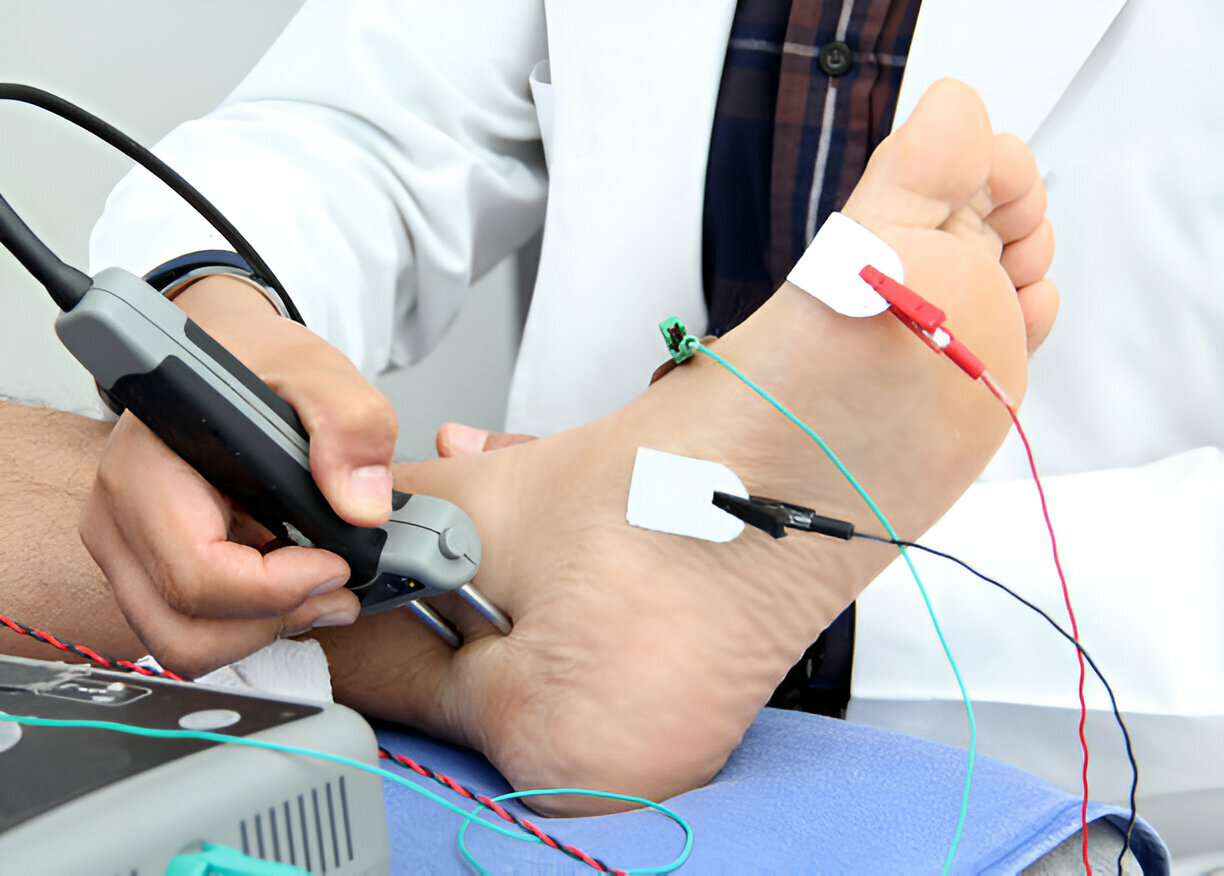

Foot pain can greatly impact your daily life, making simple activities like walking uncomfortable and restricting mobility. While some discomfort may be short-term, ongoing pain could indicate underlying issues that need professional attention. In this article, we'll explore the common causes of foot pain, when to seek professional help, and the role of a foot care clinic in diagnosing and treating your symptoms.
Foot pain can arise from various factors, including structural issues and lifestyle choices. Some common causes are:
Bunions and Hammertoes: Bunions are painful bony bumps that form at the base of the big toe, while hammertoes cause toes to bend, leading to discomfort and difficulty finding appropriate shoes.
Flat Feet or High Arches: Both conditions can cause improper weight distribution across the foot, leading to pain when walking or standing for extended periods.
Tendinitis: Tendon inflammation, such as Achilles tendinitis, can cause pain at the back of the heel and is often linked to overuse or improper footwear.
Recognizing these symptoms can help you understand the source of your discomfort. If you're experiencing persistent pain, it may be time to consult a foot care clinic.
Not all foot pain requires a visit to a clinic, but certain signs indicate that professional care is necessary:
Swelling and Redness: Swelling, redness, or warmth may be signs of an infection or inflammatory condition, which requires immediate medical attention.
Difficulty Walking: Struggling to walk or bear weight on your foot can suggest structural issues or severe inflammation that needs professional treatment.
Changes in Shape: Deformities like bunions or hammertoes should be assessed early to prevent long-term complications.
Numbness or Tingling: Loss of sensation or abnormal feelings in the feet can indicate nerve problems that require further investigation.
If you experience any of these symptoms, it's important to visit a clinic for a diagnosis and a personalized treatment plan.
They specialize in diagnosing and treating a wide range of conditions. Here's what you can expect during your visit:
Advanced Diagnostic Techniques: Many clinics use tools like X-rays, ultrasound imaging, or 3D scanning to get a detailed look at your condition and ensure accurate diagnosis.
Personalized Treatment Plans: Based on your assessment, the specialist will create a treatment plan that may include orthotics, physical therapy, or medication. If necessary, they may refer you to a podiatrist for further care.
Prevention and Education: Clinics emphasize teaching patients how to prevent future problems through proper footwear, stretching exercises, and lifestyle modifications.
When you visit a foot care clinic, you'll have access to various treatment options tailored to your specific condition:
Custom Orthotics: These specially designed shoe inserts provide support and improve alignment to alleviate pain.
Physical Therapy: A physical therapist can create an exercise program to strengthen the muscles in your feet and improve flexibility.
Medication: Anti-inflammatory medications or corticosteroid injections may be used to manage pain and reduce inflammation.
Surgery: In severe cases, surgery may be required to address structural deformities or significant injuries.
Education: These clinics also provide education on maintaining foot health and preventing future issues, including advice on footwear and daily care routines.
Prevention is often more effective than treatment. Here are some tips to help maintain healthy feet:
Choose Proper Footwear: Invest in shoes that provide good support and fit well. Avoid wearing high heels or shoes that pinch your toes.
Practice Good Hygiene: Keep your feet clean and dry to avoid infections. Regularly check for changes like blisters, calluses, or discoloration.
Stay Active: Regular physical activity helps maintain a healthy weight and strengthens the muscles in your feet.
Stretch and Strengthen: Regularly stretch and exercise your feet and ankles to improve flexibility and prevent injuries.
Be Mindful of Activities: Ensure you warm up properly before exercise and wear the right footwear to prevent injuries.
By following these preventive measures, you can minimize the risk of pain and maintain the health of your feet.
Routine visits to a foot care clinic can significantly improve your overall health by:
Improved Mobility: Addressing pain allows you to move comfortably, leading to a more active and healthier lifestyle.
Holistic Health Management: Foot problems can be linked to other health conditions, such as diabetes or arthritis. Regular visits help manage these connections effectively.
Personalized Care: A clinic will provide a plan tailored to your unique needs, leading to better outcomes and satisfaction.
Education: Ongoing visits ensure you stay informed about foot health, empowering you to take proactive steps for long-term wellness.
When selecting a clinic, consider the following factors:
Range of Services: Choose the one that offers a comprehensive range of services, including diagnostic testing, treatment options, and rehabilitation.
Patient Reviews: Check online reviews or ask for recommendations to gauge patient satisfaction and care quality.
Convenience: Choose one that is convenient in terms of location and operating hours.
Insurance: Verify that it accepts your insurance or offers flexible payment plans.
By taking the time to do your research, you can ensure you receive the best possible care for your foot health.
Foot pain shouldn't limit your mobility or quality of life. Understanding the causes, knowing when to seek professional help, and utilizing the services of a foot care clinic are crucial steps toward achieving pain-free walking. If you're experiencing pain, don't wait. Visit a clinic to receive expert care and regain your comfort.
Take the First Step Toward Pain-Free Walking
Ready to walk pain-free? Contact our foot clinic in Calgary today to schedule your appointment and start your journey toward healthier feet and improved mobility!